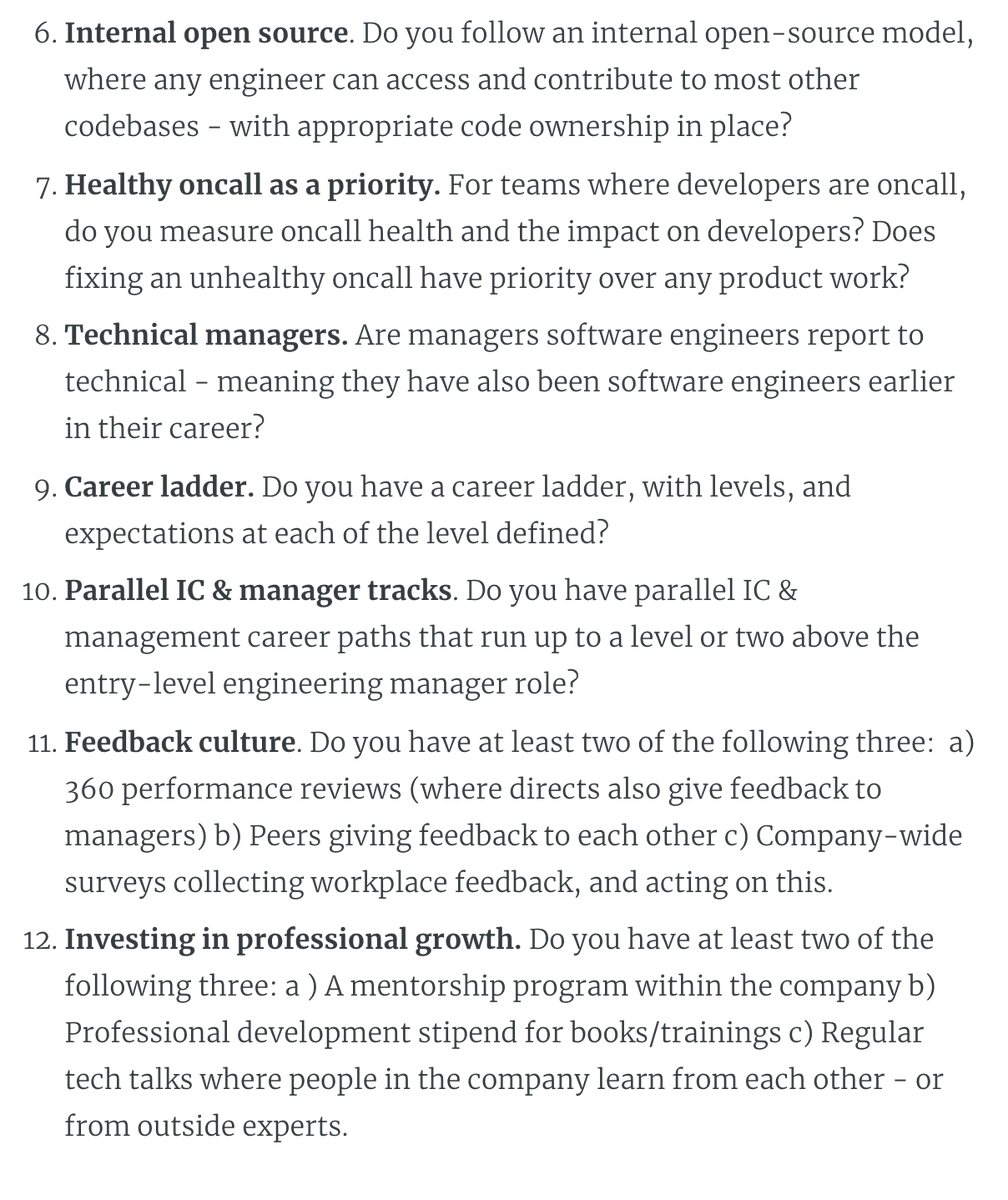
Here's a "test" I've put together to get a sense of what working at a tech company could be like - and things that are typically not advertised on job boards.
Places with more "yes"es are typically more eng-friendly, and predictable cultures.
What is your take?

Places with more "yes"es are typically more eng-friendly, and predictable cultures.
What is your take?


On the web, it's here: blog.pragmaticengineer.com/pragmatic-engi…
Instead of asking "do you pay a competitive compensation package", a much more telling question is "do all engineers get equity or profit-sharing?"
The most competitive comp packages *all* have this component. Those that don't will not be top of the market for fulltime offers.
The most competitive comp packages *all* have this component. Those that don't will not be top of the market for fulltime offers.
You can take the test here, if you want to: forms.gle/akv93AmWEs1LGk…
I'd like to amplify places that do well on this comparison.
I'd like to amplify places that do well on this comparison.
About 10 companies are filling this test out and I'm seeing scores of 11/12 from @Spotify, @findhotelco, @Stash (all of them missing the oncall part).
The most common questions companies do not score "yes" is on so far is equity for everyone (not just a select few) and oncall.
The most common questions companies do not score "yes" is on so far is equity for everyone (not just a select few) and oncall.
Wow there are a bunch of companies scoring 12/12 here:
People working at @stripe, @google, @SumoLogic, @Wise, @Rippling, @udemy, @eventbrite, @noom, @freshbooks all say these places hit those boxes (at least in some teams).
IMO oncall claims will be one to treat with caution.
People working at @stripe, @google, @SumoLogic, @Wise, @Rippling, @udemy, @eventbrite, @noom, @freshbooks all say these places hit those boxes (at least in some teams).
IMO oncall claims will be one to treat with caution.
• • •
Missing some Tweet in this thread? You can try to
force a refresh




